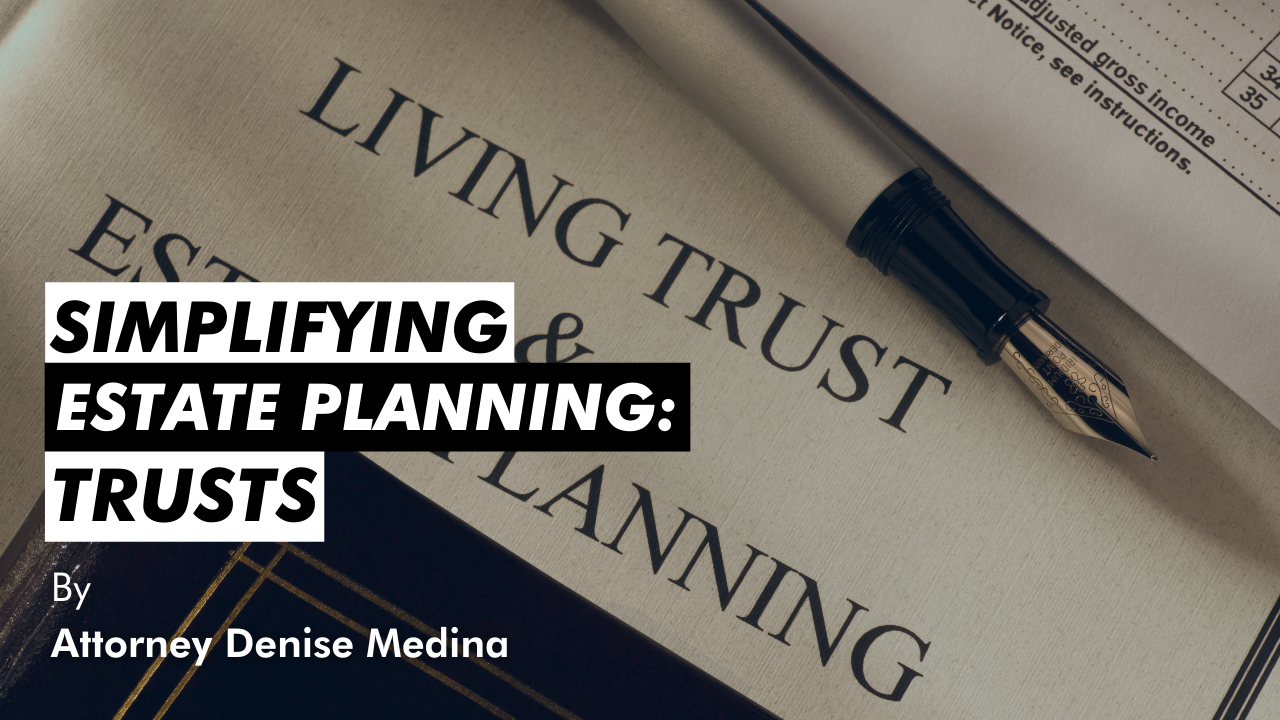
Simplifying Estate Planning: Trusts
As a practitioner of Estate Planning, people frequently ask me to draft them a “Trust”. I put this in quotes because these individuals often have a skewed definition of what a Trust is. Many believe having trust is the sole way to avoid the courts. Perhaps their accountant or financial advisor told them to get a trust. Maybe their relatives have trust, and they want one too.
In many cases, people just feel like they need a trust. If you fall into any of these categories, I hope this article helps you to understand trusts and why you may or may not need one.
Defining a Trust
While there are many ways to define it, a Trust is “an arrangement whereby a person (a trustee) holds property as its nominal owner for one or more beneficiaries”. This definition alone can be quite confusing. Now imagine having to manage a trust! So, let’s simplify it:
A Trust can be summed up as a (1) living; (2) estate planning document; (3) where a trustee; (4) holds property; and (5) for the benefit of a person/entity.
- Living: “Living” means the document is its entity. It exists while the settlor – the person who creates and funds the trust – is alive and exists after the settlor has passed. This differs from a Last Will & Testament, or even Powers of Attorney, as the former can only be used after the testator has passed, while the latter ceases to exist after the Principal has passed.
- Estate Planning Document: A trust is a great estate planning document, as it allows you to state your wishes for your property upon your death. However, to avoid court intervention you must transfer ALL your assets to your trust before your death, and even then, your beneficiaries will still have the right/ability to seek court intervention in terminating, modifying, or challenging the trust terms.
- Trustee: is the formal title of the individual managing your trust. If you a create trust, this will most likely initially be you. However, if you are unable to manage the trust due to age, mental incapacity, or death, a successor trustee will come in to manage the trust. Managing a trust often requires assistance from attorneys, accountants, or other third-party financial advisors. Accordingly, when appointing a successor trustee, appoint a trustworthy and reliable person. As the name implies, you are trusting someone with your property.
- Property: This happens all the time. People have a trust, but it is not funded. I say this as nicely as possible, you must fund your trust; otherwise, it’s just a piece of paper. A trust can hold title to all types of tangibles, intangibles, or real property. You can also add your trust as the beneficiary of your financial accounts, e.g. IRA’s, 401k’s, life insurance, etc.
- The most important thing is that you take the necessary steps to transfer the applicable property to your trust before death or put procedures in place for your property to be transferred to your trust after death.
- Beneficiaries: If you create a trust, the initial beneficiary will most certainly be you. This means you will be the Settlor and the Beneficiary, simply managing the property as though it were your own.
- However, once you pass, your trust will live on and support your beneficiaries. While the usual beneficiaries are children, some may choose to add friends, charities, or churches. Nonetheless, any property held in the trust will now benefit your listed beneficiaries. Once you pass, these beneficiaries can receive the property as you designate. Whether it’s outright, in trust, in monthly installments, or even until a certain age.
Don’t get me wrong, this article simply scratches the surface when it comes to a trust. I have yet to address tax implications, court challenges, or the actual types of trusts. As you can see, trusts are always ripe for legal assistance. If you have questions about your trust, or starting one, contact Denise Medina at Fausone & Grysko, PLC. Contact Denise today at (248) 380-0000.
